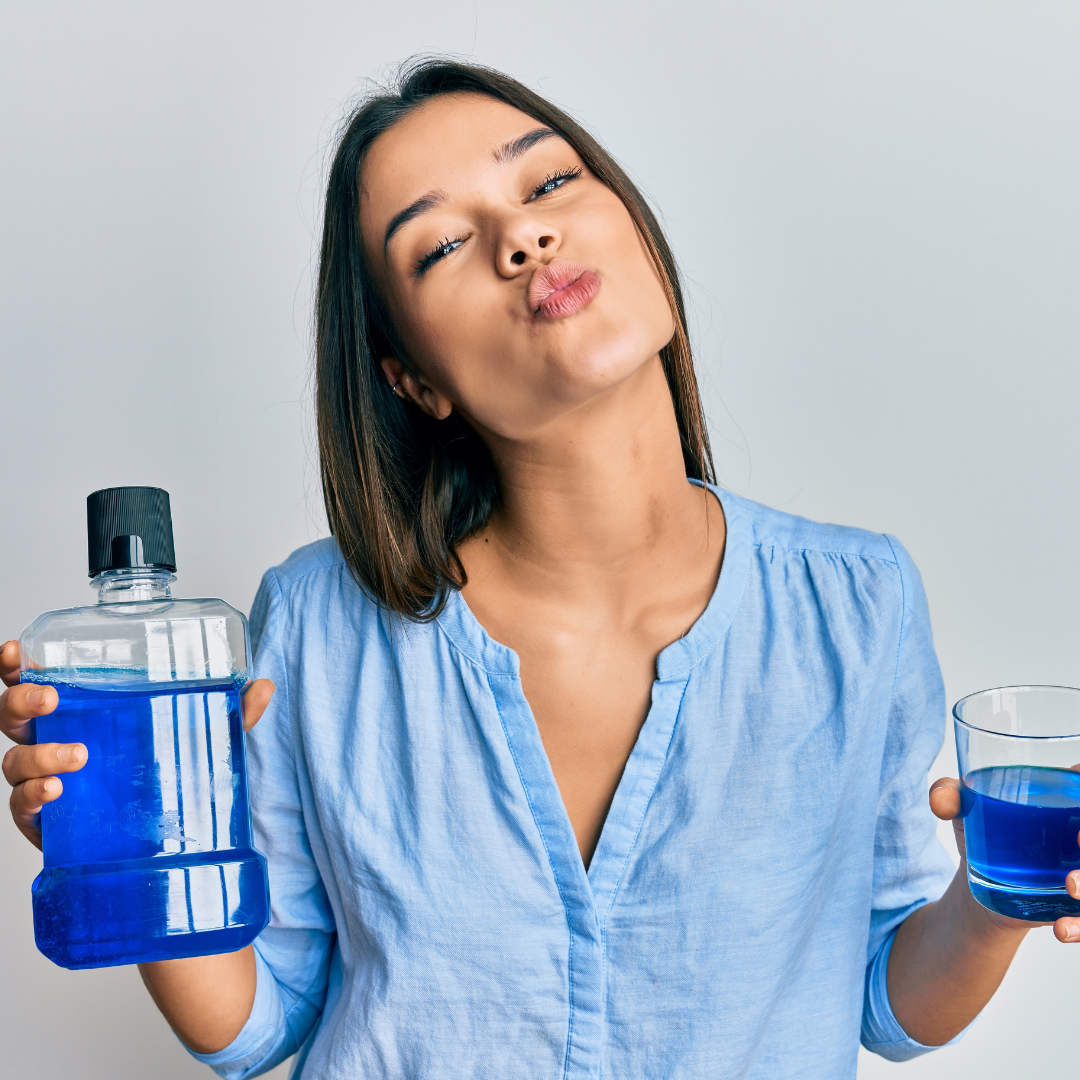Who doesn’t love the minty freshness that comes from a swish of a mouthwash? Aside from freshening your breath, mouthwash is also designed to help promote better oral health.
If you go shopping for a mouthwash and read its label, you’ll find that it is a multi-tasker. It removes plaque in your teeth and helps in fighting gum disease. There are just so many benefits of using mouthwash and it’s no wonder why a lot of people rely on it every day for taking care of their teeth.

However, using mouthwash also comes with several dangers which we are going to discuss below.
- Can Be Dangerous When Ingested
There’s a reason why mouthwash isn’t recommendable for children aged six years old and below. That is because accidentally ingesting mouthwash can be a serious health hazard for them since some of them contain toxic chemicals.
Children are prone to accidentally ingesting anything, and one of those things is mouthwash. If ingested by children, it can lead to convulsions and cases like comatose. Even children between the ages of six and twelve should still be supervised by an adult when using mouthwash. Those children who are below six years old should only use mouthwash under a dentist’s prescription.
- Make Your Teeth More Sensitive
Being sensitive is very annoying, it can make your day bad. For example, you are thinking about eating ice cream on a very hot day but your teeth come in contact with very cold ice cream and suddenly you feel a different kind of pain that you certainly have not experienced before.
This happens because mouthwash contains alcohol which makes your teeth to be sensitive. Alcohol dissolves the mucus layer in your mouth, making it more vulnerable and sensitive which is an unpleasant experience that you want to avoid.
- It Only Masks Bad Breath
It’s important to remember that mouthwash doesn’t help you with your bad breath. The truth is, mouthwash only masks your bad breath. So, you should understand that it’s not a good substitute for regular brushing and flossing.
Depending on how bad your oral health is, mouthwash can never cure halitosis or bad breath. That fresh minty effect produced by mouthwash is short-lived. After the effects of mouthwash disappears, your bad breath will come back again. There is a big difference between treating the condition and simply masking the bad odor coming from your mouth. If you have bad breath, you should better discuss it with your dentist to treat the underlying issue.
Never rely on mouthwash to maintain and improve your oral health. It can help with your bad breath and hide it, but it’s simply not enough.
- Can Cause Dry Mouth
Saliva is important for our mouth as it supports the process of remineralization which is responsible for fighting off cavities naturally. Using mouthwash can disrupt that natural process and causes your mouth to produce less amount of saliva.
Unlike toothpaste which contains anionic compounds that kills bacteria after brushing your teeth, the high alcohol content of most mouthwash sold on the market contains cationic compounds which counteract the effects of the toothpaste. The reaction between these two compounds is what causes the dry mouth that you experience after brushing and using mouthwash.
There are even some people who experienced pain as a result of the reaction between the two compounds.
- Increases The Risk Of Oral Cancer
Mouthwash, especially those that contain high alcohol content is linked to oral cancer. This is also why it’s recommended that you only use mouthwash that is alcohol-free.
- Contradicts The Effects Of Brushing Your Teeth
Many people like to use mouthwash right after brushing their teeth not knowing that it contradicts the effects of brushing. It contains compounds that can strip away the fluoride in toothpaste which is necessary for keeping our teeth healthy and good-looking. Dentists advise that you should only use mouthwash for at least 30 minutes after brushing your teeth to avoid this from happening.
Mouthwash contains ingredients that counteract the effect of toothpaste. That means, brushing your teeth is useless if you are just going to use mouthwash right after.
Final Thoughts
It’s best to ask your dentist which mouthwash to get. Also, it’s best if you opt for a mouthwash that is alcohol-free because its effects are milder. You may also choose to create your own all-natural homemade mouthwash. It can still do the same thing as most mouthwashes that are available on the market but is safer for your oral health.